Alabama Is Going to Kill Rocky Myers. He Might Be An Innocent Man.
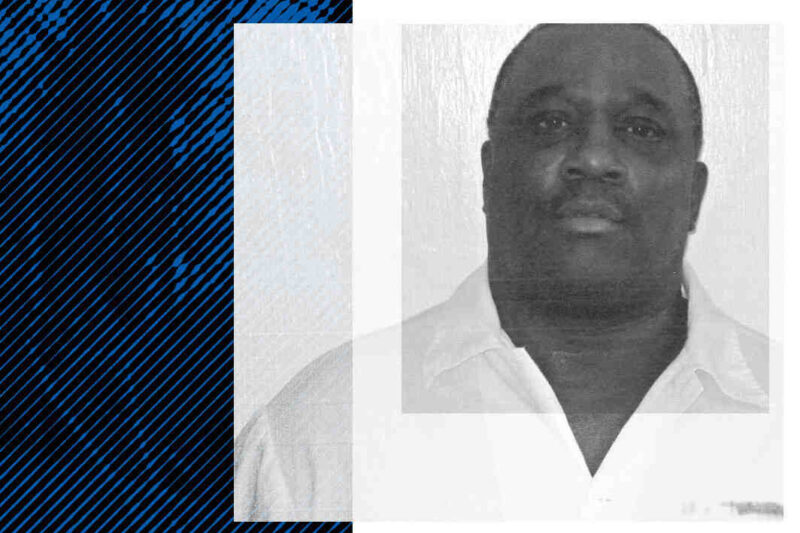

On the night of October 4, 1991, Mamie Dutton was asleep in a bedroom at her cousinโs house in Decatur, Alabama. The cousin, Ludie Mae Tucker, lived a few blocks west of the cityโs shopping district, in a run-down neighborhood that struggled with crime and had been dubbed โcrack townโ by locals. Around midnight the doorbell rang.
When Dutton peered out of her room, she could see Ludie Mae talking through the window blinds with a man on the porch. He was agitated, and said heโd been in a car crash and needed to use the telephone to call his family. โIโm bleeding to death,โ he pleaded. Ludie Mae offered to dial the number for him. Dutton could hear that heโd come inside the house. โ[He] was just a jabbering and his voice was a quivering,โ Dutton said later in a statement. She heard Ludie Mae say that her husband was in the other roomโa strange comment, given that she wasnโt married.
Suddenly, Ludie Mae cried out. Dutton was too scared to leave the room. โI just froze. I couldnโt move,โ Dutton later told police. โI knowed he was doing something to her.โ
The man then ran into Duttonโs darkened room and stabbed her in the side before running out of the house. She didnโt manage to get a clear look at himโexcept that he was wearing a โlight looking shirt.โ When Dutton came out of her room, holding the wound on her side, Ludie Mae was lying on the couch bleeding with the phone in her hand. Sheโd been stabbed four times, including once in the left side of her chest, but sheโd managed to dial 911 and was on the phone with Decatur police.

Ludie Mae's house in Decatur, Alabama (Andrea Morales/ภฯฐฤรลฟชฝฑฝแน๛)
An officer whoโd been patrolling the neighborhood arrived on the scene minutes after Ludie Maeโs call. Ludie Mae was near-hysterical, but conscious enough to describe her attacker to the officers who arrived moments later as a black male, stocky and short with a โlight colored shirt that looked like it had blood on it.โ An ambulance rushed her to the hospital, but it was too late. The stab wound to her chest had pierced her heart, and not long after arrival, she was pronounced dead.
More than two years later, a man named Robin โRockyโ Myers was convicted of Ludie Mae Tuckerโs murder. At the time of Ludie Maeโs death, Rocky was living across the street from her with his wife and children on one side of a converted duplex. Today, heโs one of 175 prisoners on death row in Alabama, in the same prison where Dominique Ray was recently executed.
According to his lawyers, the state may be preparing to kill an innocent man. Convicted on the basis of scant evidence by a nearly all-white jury in a trial that lasted only a week, Rocky has intellectual disability, scoring at or below the crucial 75-point threshold for a formal diagnosis in four out of five IQ tests. His death sentence was imposed by a judge who overrode the juryโs recommendation for life without parole through a procedural option that is no longer legal. And because of egregious conduct by an attorney working on his case, Rocky lost his chance for a post-conviction appealโwhich meant that he was unable to present new evidence in federal court, including testimony revealing that police interfered with a key witness.
To Kacey Keeton, a federal defender who picked up Rockyโs appeal in 2007, the case is a checklist for everything thatโs wrong with the death penalty in America. โI think there was an elderly white lady that was dead in Decatur, Alabama, and the prosecution was telling [the jury], โHey, we have this black guy who did it,โโ she said. โAnd I think thatโs it.โ
The Investigation
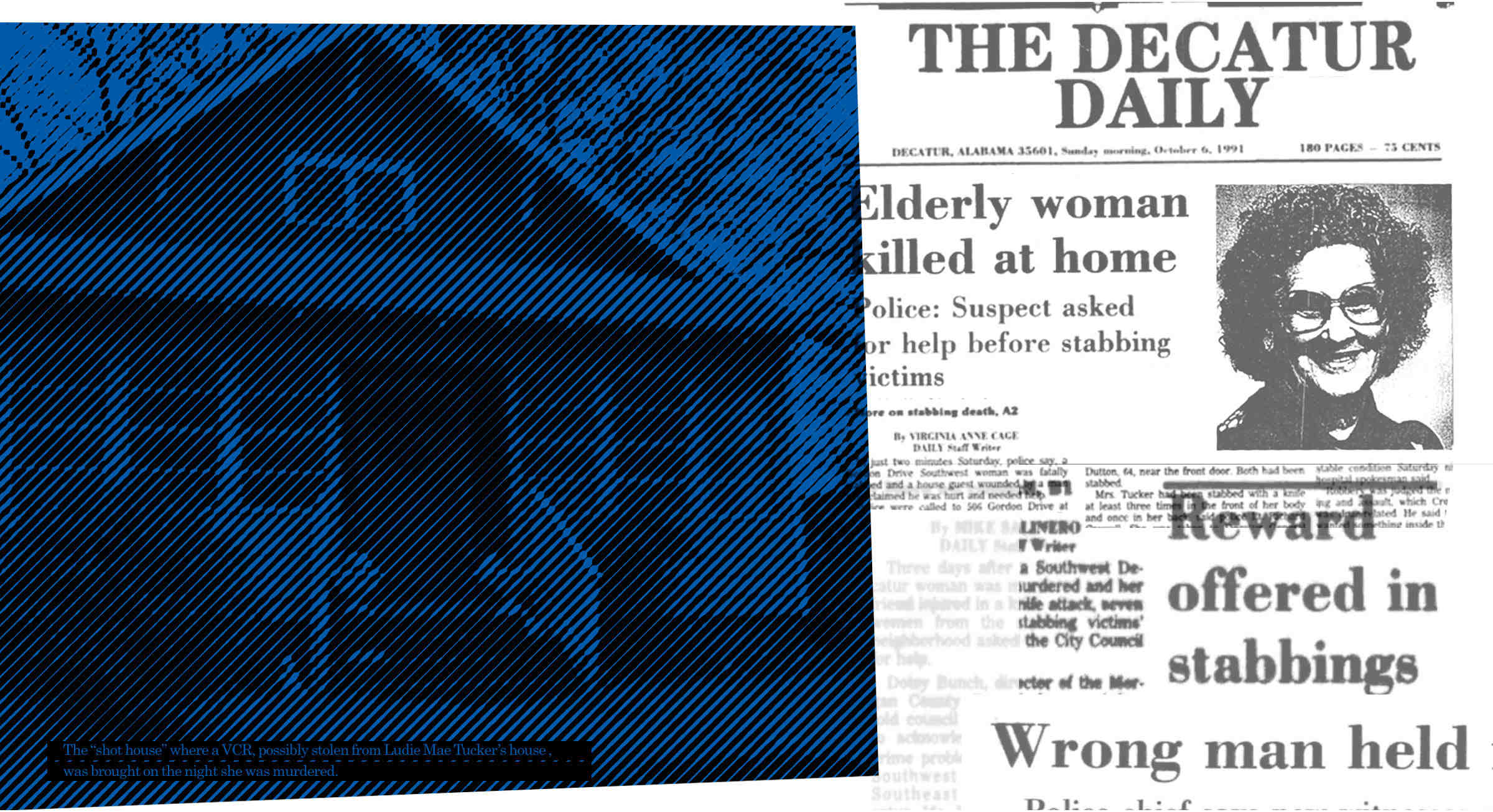
Rocky wasnโt the first suspect to come under the spotlight during the investigation. After Ludie Maeโs murder, detectives searched her house for forensic evidence. They didnโt lift any usable fingerprints from the crime scene, but they did determine that a VCRโa valuable consumer good in 1991โwas missing. Then the day after the murder, a local man handed over to the Decatur police department a VCR matching the description of the one stolen from Ludie Maeโs house. He said heโd found it at his sisterโs house, which was just a few blocks up the road from Ludie Maeโs.
The house wasnโt an average family home. His sister was running the property as a โshot house,โ where people could buy whiskey and beer, and a local drug dealer named Leon โButchโ Madden sold crack cocaine from the porch. Butchโs operation was no secret to law enforcement, with one witness in the case later saying that he had a โwell known relationship with the Decatur police.โ There were rumors that heโd been given a de facto license to sell drugs in exchange for information and other favors.
When police called Butch in, he complied, along with one of his lieutenants, Willie โRoadrunnerโ Raybon. After questioning, the two men signed statements saying that a regular customer of the shot house, Anthony โCool Breezeโ Ballentine, had traded the VCR for crack on the night of Ludie Maeโs murder. Butchโs statement described Cool Breeze as showing up with the VCR, โsweating and shaking, acting paranoid as hell.โ
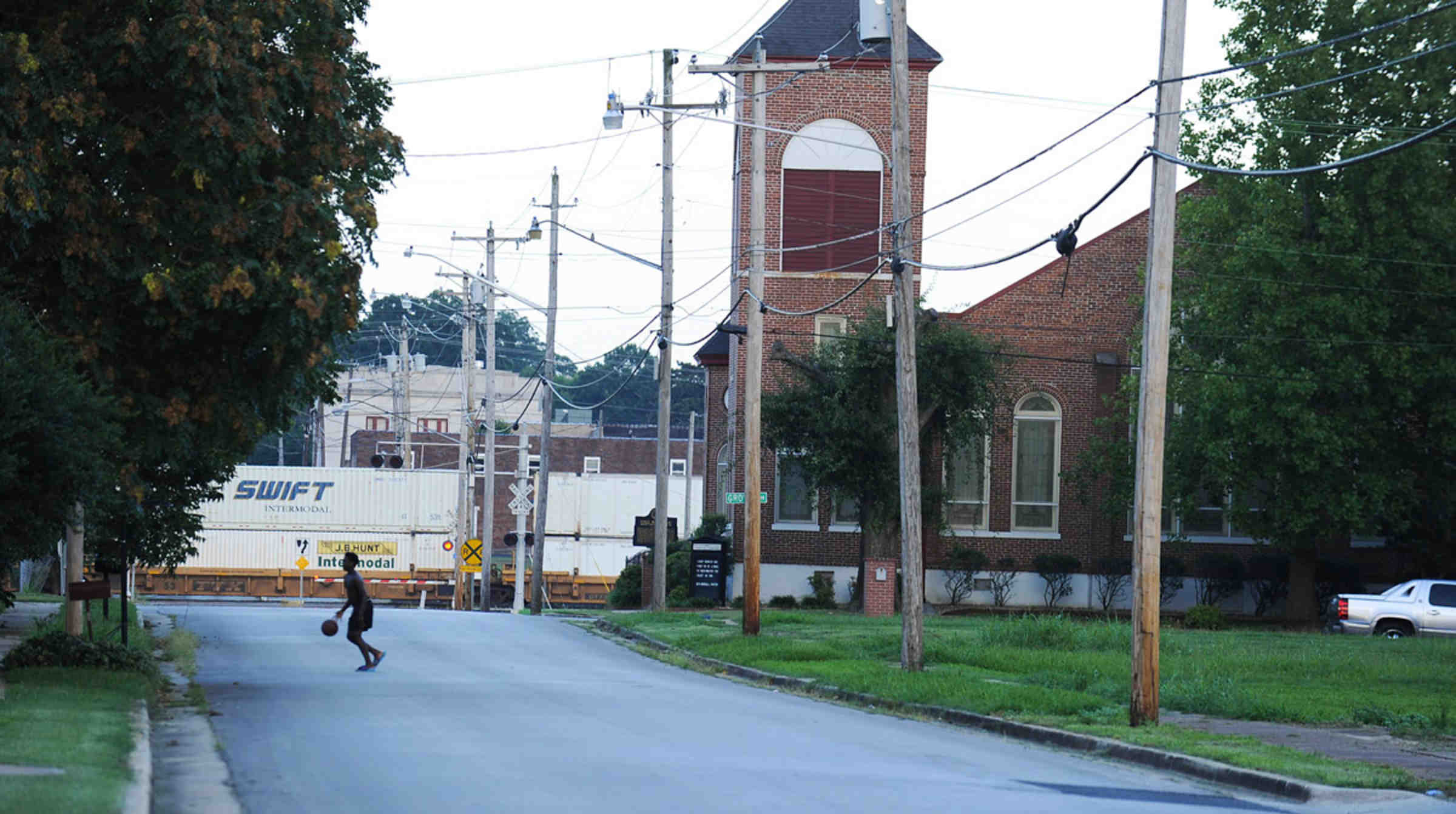
Old Town Neighborhood in Decatur, Alabama (Jeronimo Nisa/AP).
Cool Breeze was well-known in the neighborhood. Although he was a heavy crack user, his family was respected, with deep roots in Decatur. Soon police got another tip that pointed toward his involvement in the murder. A woman who lived in the neighborhood called in and said sheโd seen him run into an alley near Ludie Maeโs house on the night of the murder, wearing a white shirt stained with blood. Armed with the statements, detectives put out a warrant for Cool Breezeโs arrest, picking him up at the aluminum plant where he worked.
With Cool Breeze in custody, the governorโs office issued a reward for further information about the murder to see if they could strengthen their case. A few weeks later, a local man whoโd known Cool Breeze for nearly 30 years came forward to claim it, saying that heโd seen someone else cross the road near Ludie Maeโs house with a VCR tucked under his arm on the night of the murder. Heโd been tracked down by an investigator working for Cool Breezeโs defense team, who found him working at the same country club where Cool Breezeโs father served as head waiter. He offered detectives an affidavit saying that the man heโd seen cross the road was short and stocky, certainly not Cool Breeze, who was nearly six-foot tall.
Detectives called Butch and Roadrunner back into the station for another interview, where both men recanted their earlier statements. Roadrunner claimed heโd implicated Cool Breeze because he was angry over an argument theyโd had the night of the murder, and Butch said heโd backed up Roadrunnerโs statement because โI just figured thatโs what everybody wanted to hear.โ They said the story theyโd originally told was still mostly true: a man had come to the shot house asking for crack on credit the night of Ludie Maeโs murder, returning later with a VCR to trade.
But there was one major change. Instead of Cool Breeze, they now fingered Rocky Myers as the man whoโd come to the shot house with the VCR.
Detectives Shift Their Focus
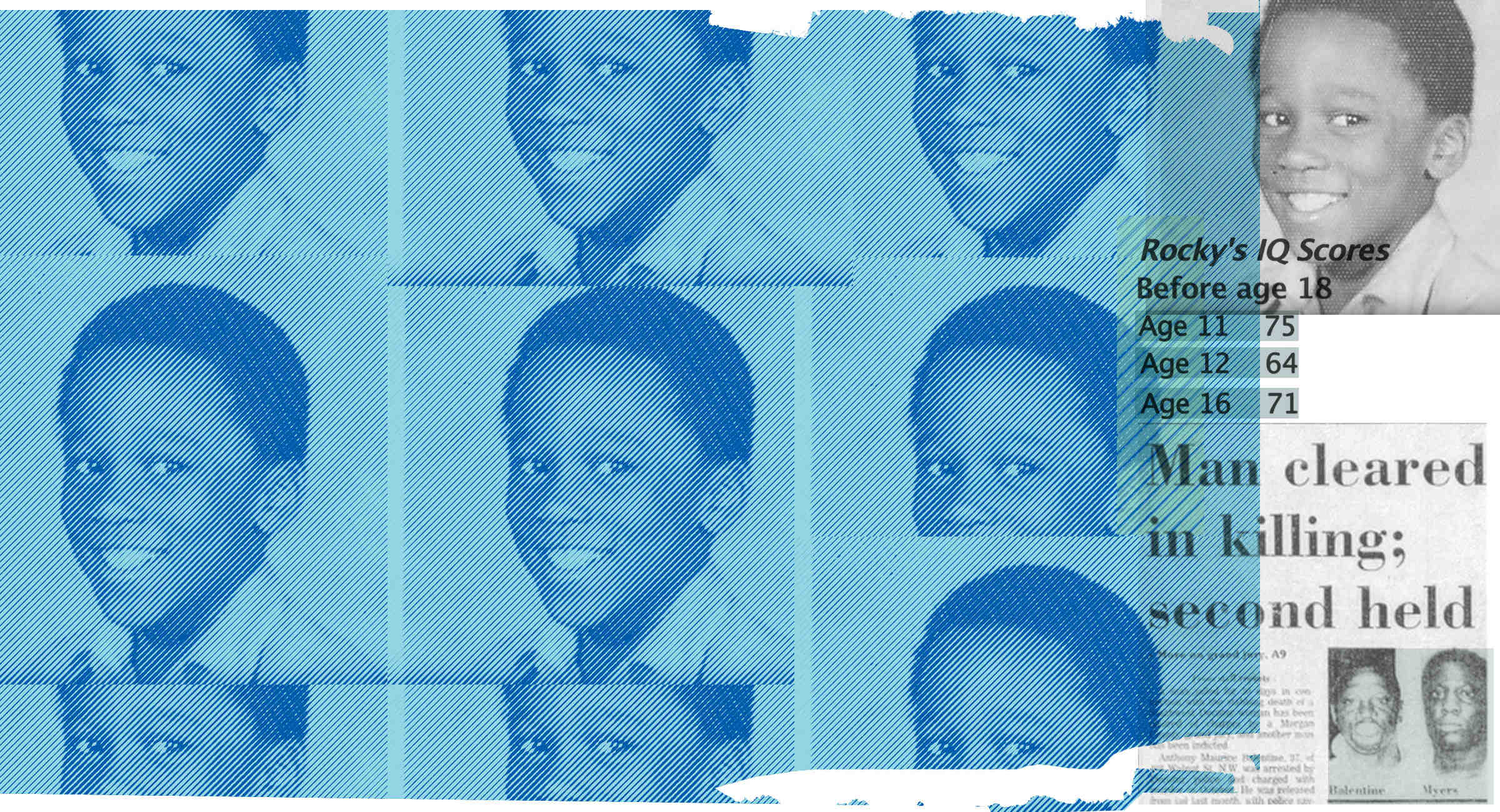
Rocky Myers grew up in New Jersey, one of 10 children in what relatives describe as a โhard life.โ His father was an alcoholic, and his mother battled depression after having her first child at 14. From early on it was apparent that Rocky had a hard time keeping up with other kids his age, and at 11 he was diagnosed with intellectual disability (termed โmental retardationโ at the time). โRocky was a misunderstood, gentle person,โ . โHe didnโt excel like his brothers did.โ He struggled at school, never learning how to read above a third-grade level, and at 16 years old he couldnโt tell time.
Rocky eventually married and had four children, moving to the west side of Decatur, a small port city just south of the Tennessee border where his wifeโs family lived. His children remember him as a loving father who, despite his struggles with drug abuse, never left their lives or abused them. โHe was there for us. We never had to beg for anything to eat. I mean we didnโt have everything in the world but we had him and my moms. I mean, we had us,โ said Deon Myers, his second-youngest son. โI just donโt have any memory of him being any type of violent person.โ
Rocky and his family eventually settled into a home across the street from Ludie Mae. He did odd jobs, scraping together cash from friends and family while his wife worked as a cook at a nearby restaurant. At the time of Ludie Maeโs murder Rocky was a regular user of crack, but while heโd been arrested for theft heโd never been charged with a crime involving violence. When he had the money, heโd walk up a narrow alley that ran three blocks up from his home to Butchโs shot house and buy $10 or $20 worth of crack.
After Butch and Roadrunner changed their statements, homicide detectives turned their focus toward Rocky, who was on probation for receiving stolen property. Detectives called him for a urine test, which he failedโa violation of his probation. Rocky was sent to jail, where he was interrogated. The interrogation wasnโt filmed or recorded, but the two detectives gave an account of it during Rockyโs trial. According to Detective Sergeant Dwight Hale, Rocky admitted to using crack but denied knowing anything about the murder and said heโd never met Roadrunner or Butch before. But then Hale asked Rocky if he knew a man named Marzell Ewing. Rocky said he did.
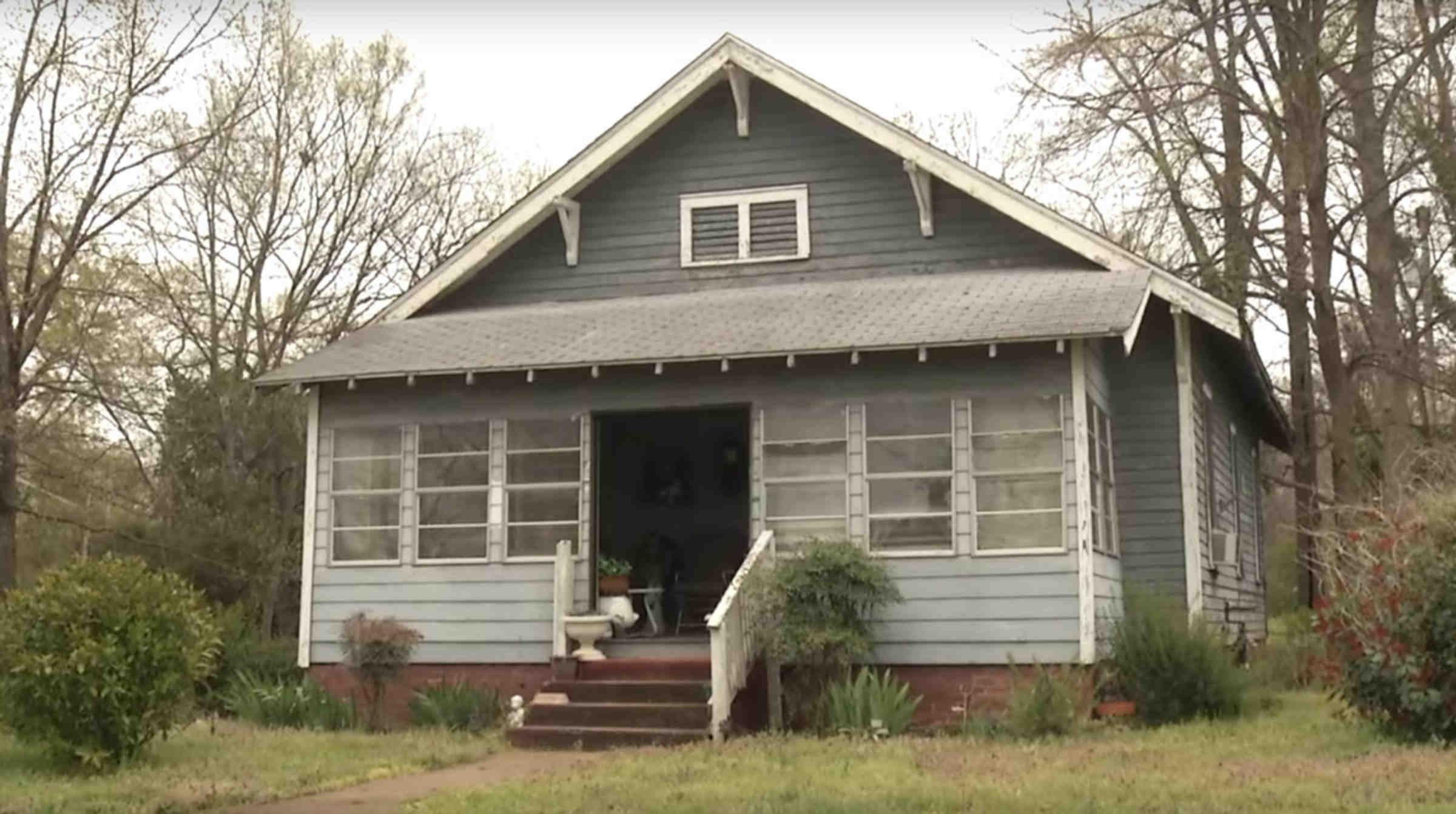
The "Shot" House where Ludie Maeโs VRC was found (Clemency for Rocky Myers/YouTube).
Marzell was an associate of Butchโs who, in his own words, โsold drugs, watched houses, and did basically anything he needed at the time.โ He and Rocky knew each other well from around the neighborhood. So when Hale said that Marzell had made a statement saying that heโd seen Rocky give a VCR to Butch the night Ludie Mae was killed, Rocky hung his head. In the following hours, he admitted knowing Butch and Roadrunner and said that he had indeed traded a VCR for crack at the shot house on the night of Ludie Maeโs murder.
But Rocky denied that heโd been at Ludie Maeโs house that night; he claimed heโd found the VCR stashed in the alley that runs between his house and the shot house. When detectives pressed him on the timing of his story about finding the VCR and taking it to Butch, he faltered โ first, it was 40 minutes before police arrived at Ludie Maeโs house, then 10 minutes, and finally, he said he couldnโt remember clearly. When Hale told him that he was facing the electric chair, he started crying and asked to speak with his mother.
Keeton, Rockyโs current attorney, says that his inability to provide a clear timeline during the interrogation has everything to do with his intellectual disability, which sheโs observed in more than a decade of working with him on his case. For years when sheโd visit him in prison, for example, she found it strange that he would refuse her offer to eat while they talked about his case โ until she realized that he didnโt know how to operate a vending machine.
โHe was under extreme stress and anxiety and not understanding a lot of the communication,โ she said. โAsking him a month-plus out, โwhat were you doing on October 4โโthereโs no way he can provide a good memory. So you have someone whoโs intellectually disabled fumbling it, and sounding like somebody fumbling it.โ
But for the detectives, Rockyโs admission that heโd initially lied along with his erratic account of the timeline and the statements they had from Butch, Roadrunner, and Marzell saying that they saw Rocky with the VCR was all they needed. Cool Breeze was released, and Rocky was charged with the capital murder of Ludie Mae Tucker.
The Trial
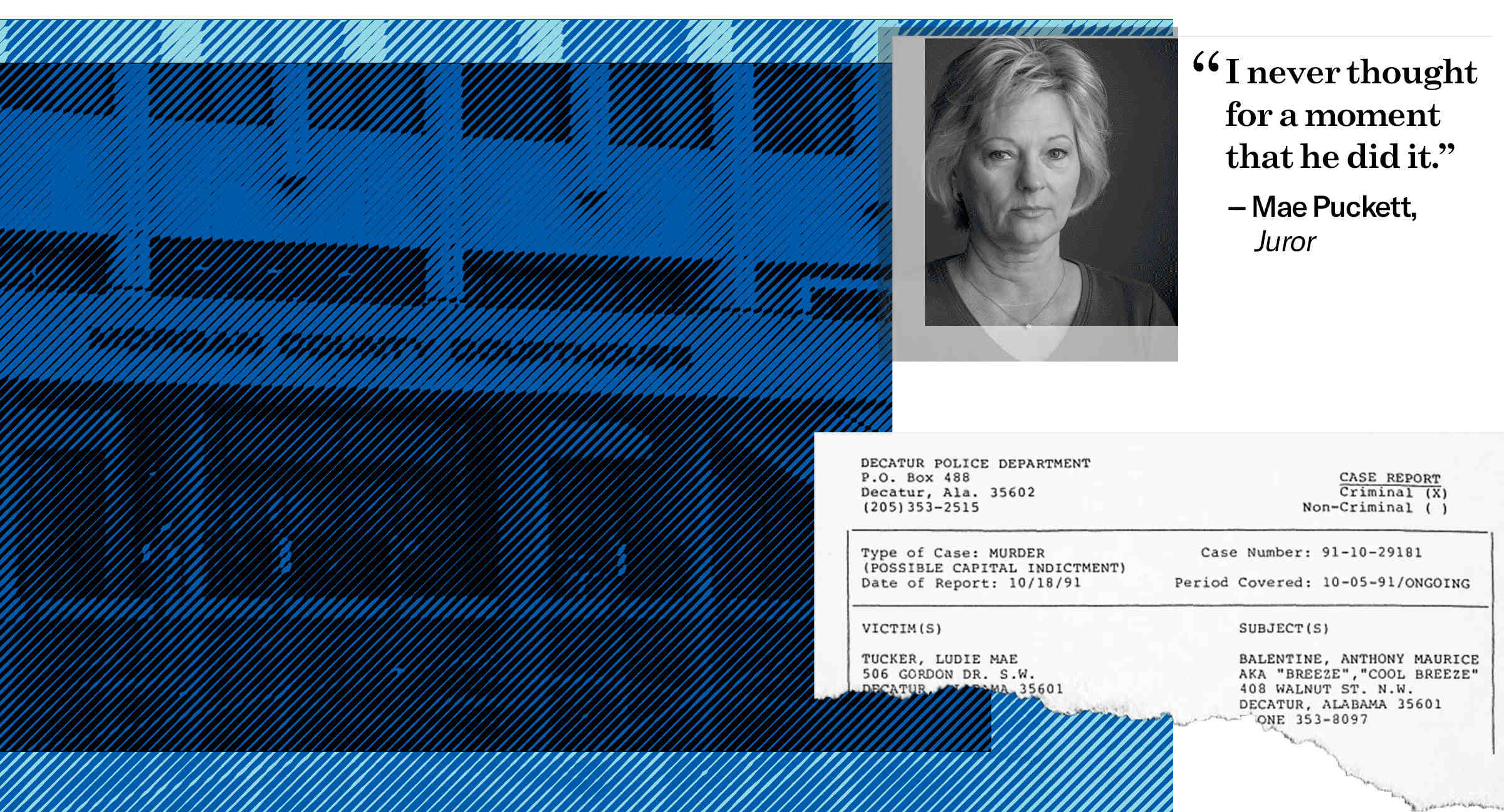
Two years later, Rockyโs trial began. The prosecutor told the jury a straightforward story: Rockyโs drug addiction had overwhelmed his judgment, and after Butch refused to give him crack on credit he broke into Ludie Maeโs house and killed her for her VCR. But there were parts of the prosecutionโs story that didnโt add up.
To start, multiple witnesses described Rockyโs attire the night they saw him at the shot house as black or dark brown rather than the light-colored shirt that Ludie Mae and her cousin said their assailant was wearing. And Roadrunner testified that Cool Breeze had also been at the shot house on multiple occasions that night, at one point โsweating real hardโ and wearing a white sweatshirt with blood on it. Rocky had terrible eczemaโeven the detectives who interrogated him noted his flaky, scaly skinโyet despite the prosecutionโs contention that heโd been in a violent struggle with Ludie Mae, no skin flakes were found at the scene.
Roadrunner also testified that the alley leading to the shot house was a well-known stash spot, saying that he himself had frequently found and hidden stolen goods and drugs there. Police arrived at Ludie Maeโs house just minutes after her frantic 911 call, making it plausible that the assailant had stashed the VCR in the nearby alley once he heard sirens approaching the area. In fact, there was no evidence at all that Rocky had been at the scene of the crime aside from his possession of a VCR.
โThey had all these people, witnesses coming up, and they would have a given name and a nickname, and then a street nickname,โ said Mae Puckett, a juror who served on the case. โBut with every nickname came a different version of the story.โ
Finally, Rocky took the stand. He testified that on the afternoon of Ludie Maeโs murder heโd bought crack from Butch and smoked it back at his house. Heโd planned to go to a club with his in-laws but when he arrived at their house, theyโd already left. On his way back home he said he spotted the VCR hidden under a bush in the alley, took it to the shot house that night, and traded it to Butch for a $20 rock of crack. But he was adamant in stating that he had nothing to do with Ludie Maeโs murder.
Rockyโs testimony raised critical questions. Why would Ludie Mae have believed that her neighbor needed to use her phone to call his family after a car crash, and why didnโt she identify him to police as her attacker before she died? Years later, Mamie Dutton, her cousin, told a lawyer working on Rockyโs appeal that she and Ludie Mae had seen Rocky across the street earlier that day, and Ludie Mae had mentioned that she knew him from the times heโd knocked on her door to ask for ice. And Rocky surely knew that Ludie Mae lived alone โ yet on the night of the murder, Dutton said sheโd heard her cousin tell her attacker that her husband was in the other room.
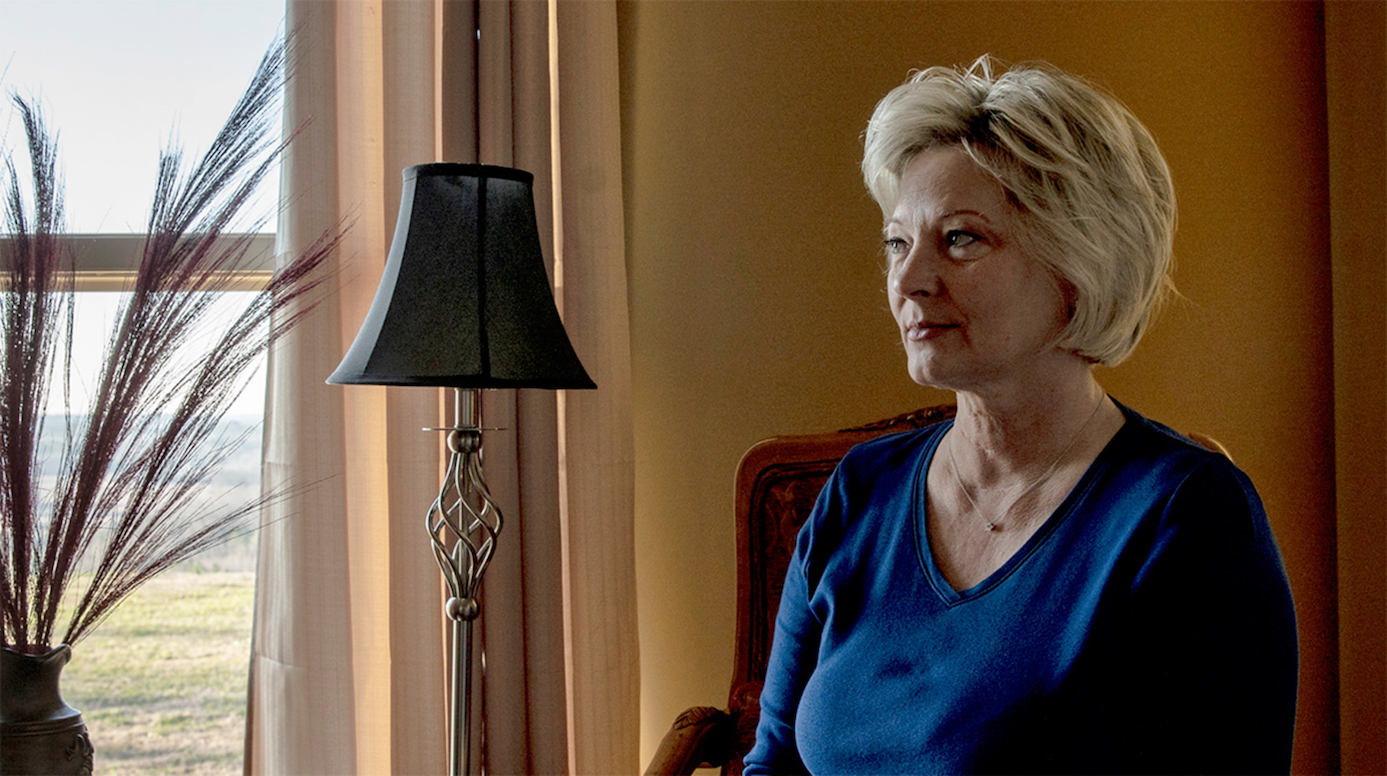
Juror Mae Puckett in her home (Andrea Morales/ภฯฐฤรลฟชฝฑฝแน๛).
Puckett, the juror, noticed these holes in the prosecutorsโ case. โIt was the stateโs place to prove that Rocky Myers was in the home and committed that crime. In my mind it never happened,โ she said. โI kept waiting for that word that was going to tell me what happened and there was never one. There was never that aha moment.โ
But Puckett says the deck felt stacked against Rocky from the beginning. During jury selection, one juror said that if a suspect made it through a grand jury he was โautomatically guilty.โ And she remembers that another juror kept referring to the VCR as โrabbit tracksโ that proved his guilt. A decade after the trial, when Keeton took over Rockyโs appeal she interviewed another juror who openly used a vicious racial slur to refer to Rocky and called him a โthug.โ
Puckett recalls that at least three other jurors didnโt believe there was enough evidence to convict Rocky. But as hard as they tried, Puckett and the others who shared her uncertainty couldnโt get the rest to budge. Eleven of the 12 jurors were white, and most were set on voting guilty.
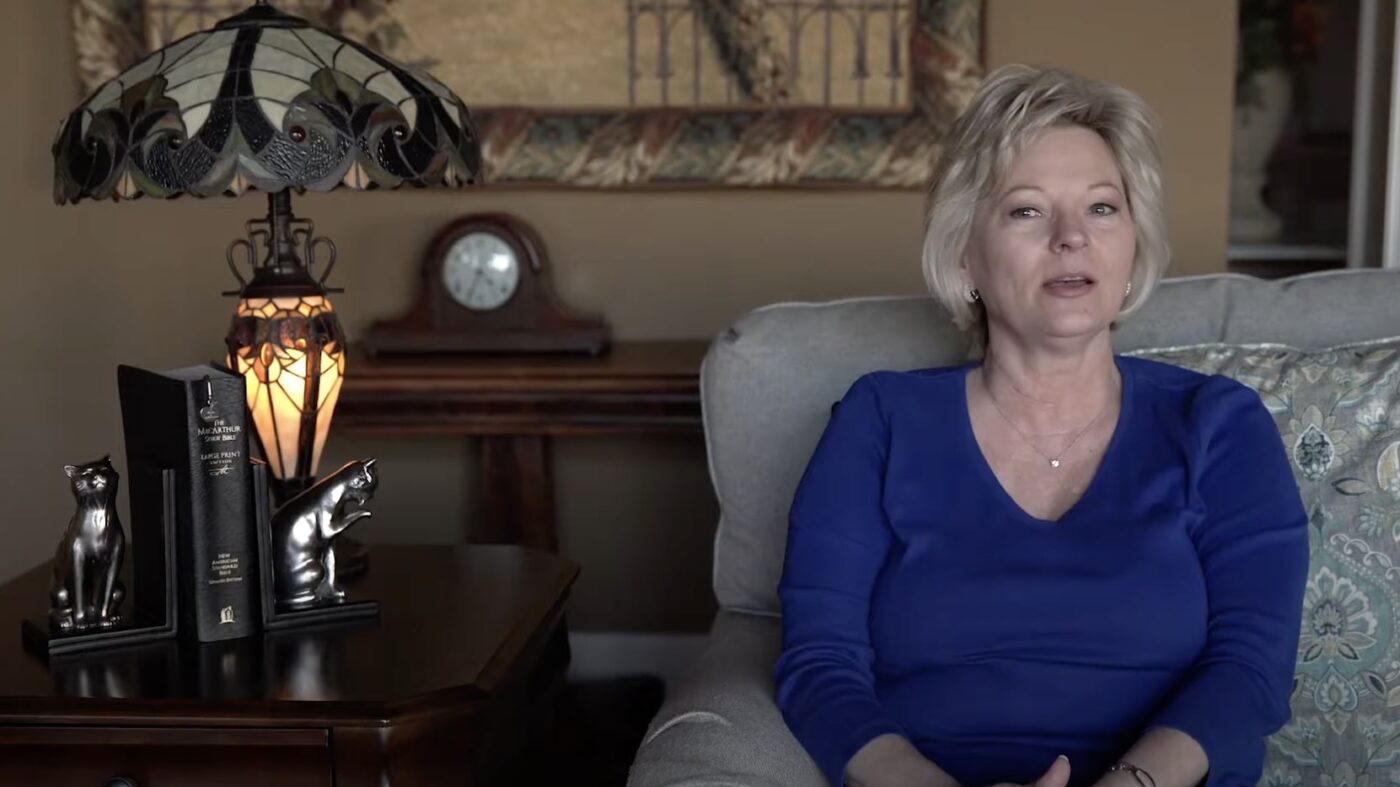
According to Puckett, the group of unconvinced jurors feared that if they didnโt find a compromise, the outcome of the trial would be a hung jury. In that case, Rocky would be retried in front of a new jury that could have even fewer sympathetic members, and increasing the chances that he would be sentenced to death. So they reached an agreement: they would vote for a guilty verdict along with the rest in exchange for a recommendation of life without parole. โWe were dealing with ourselves trying to come up with a way to save his life,โ Puckett said. โThatโs what it boiled down to.โ
Rocky was thus convicted of capital murder, and by a margin of 9-3 the jury provided their agreed-upon recommendation of life without parole to the judge. The verdict came as a stunning blow to Rocky, whoโd been convinced that the trial would end with his acquittal. โI was very surprised,โ he said in a phone interview. โI thought I was going to go back to New Jersey.โ
A few months later, Puckett was at her home outside of Decatur when she got a call from one of the other jurors. The judge whoโd presided over the case had exercised his option of โjudicial override,โ discarding the juryโs recommendation of life without parole and sentencing Rocky to die instead. From the bench, he said the jury had been too โemotionalโ in choosing not to recommend the death penalty on its own and described Rocky as a โthreat to society.โ
โI never thought for a moment that he did it,โ said Puckett, her voice cracking. โWe struggled over [our decision] for good reason. And if we were emotional, it was valid. How could someone do that without emotion? Would you want someone like that on a jury?โ
Negligence in the Appeal
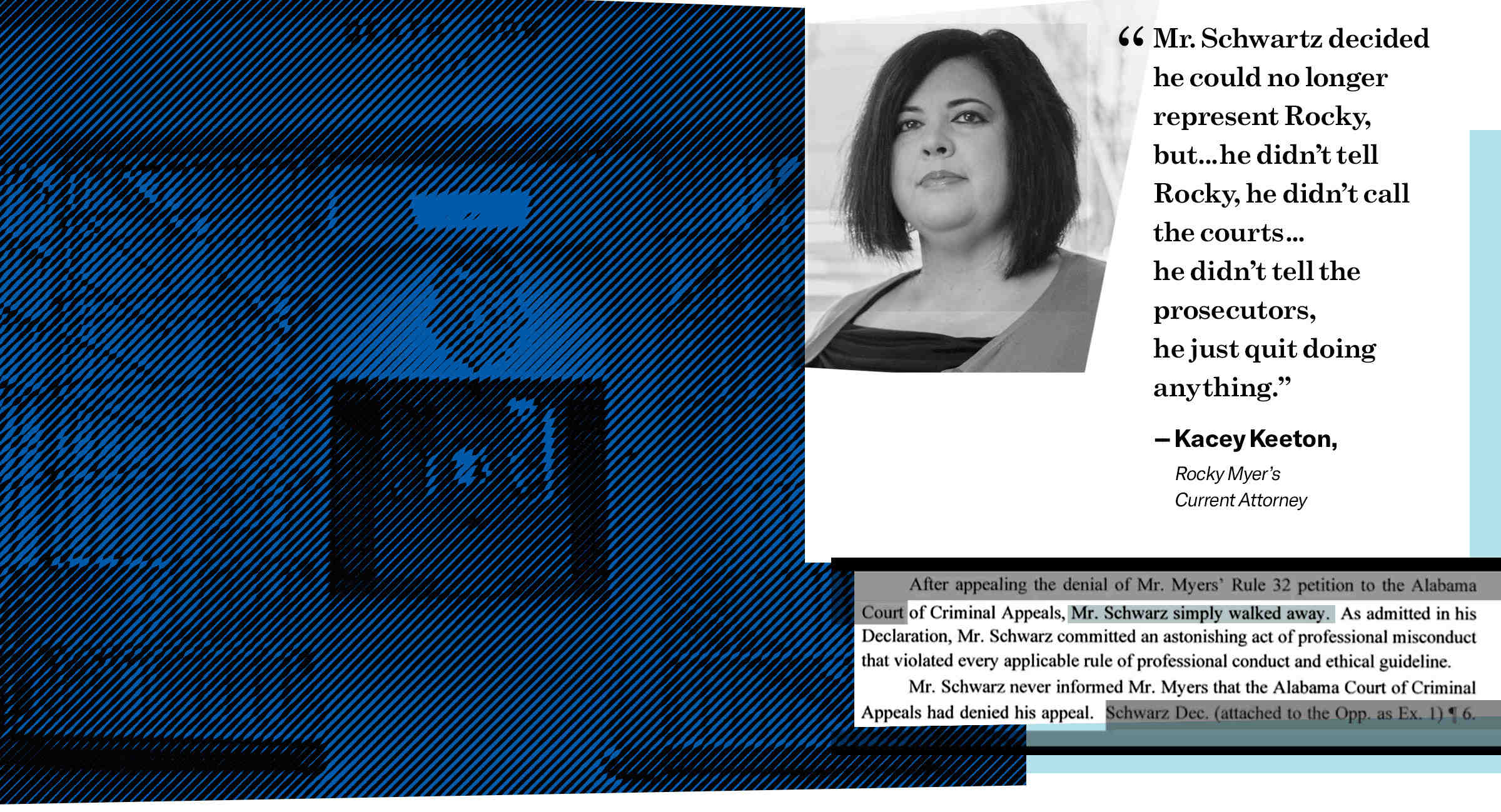
Since 1976, when the U.S. Supreme Court ruled in Gregg v. Georgia that capital punishment was constitutional, only three states have ever allowed the practice of โjudicial overrideโ in death penalty cases: Florida, Delaware, and Alabama. In 2016, the U.S. Supreme Court ruled that Floridaโs judicial override statute was unconstitutional. That same year, Delawareโs Supreme Court banned the practice in that state.
Of the three states, Alabamaโs use of judicial override was the most notorious. Before the practice was banned by the state legislature in 2017, an Alabama-based legal advocacy organization called the Equal Justice Initiative calculated that 20 percent of inmates on death row in Alabama had their sentences imposed through judicial override. Three-quarters of such cases involved a white victim, though only 35 percent of homicide victims in the state are white.
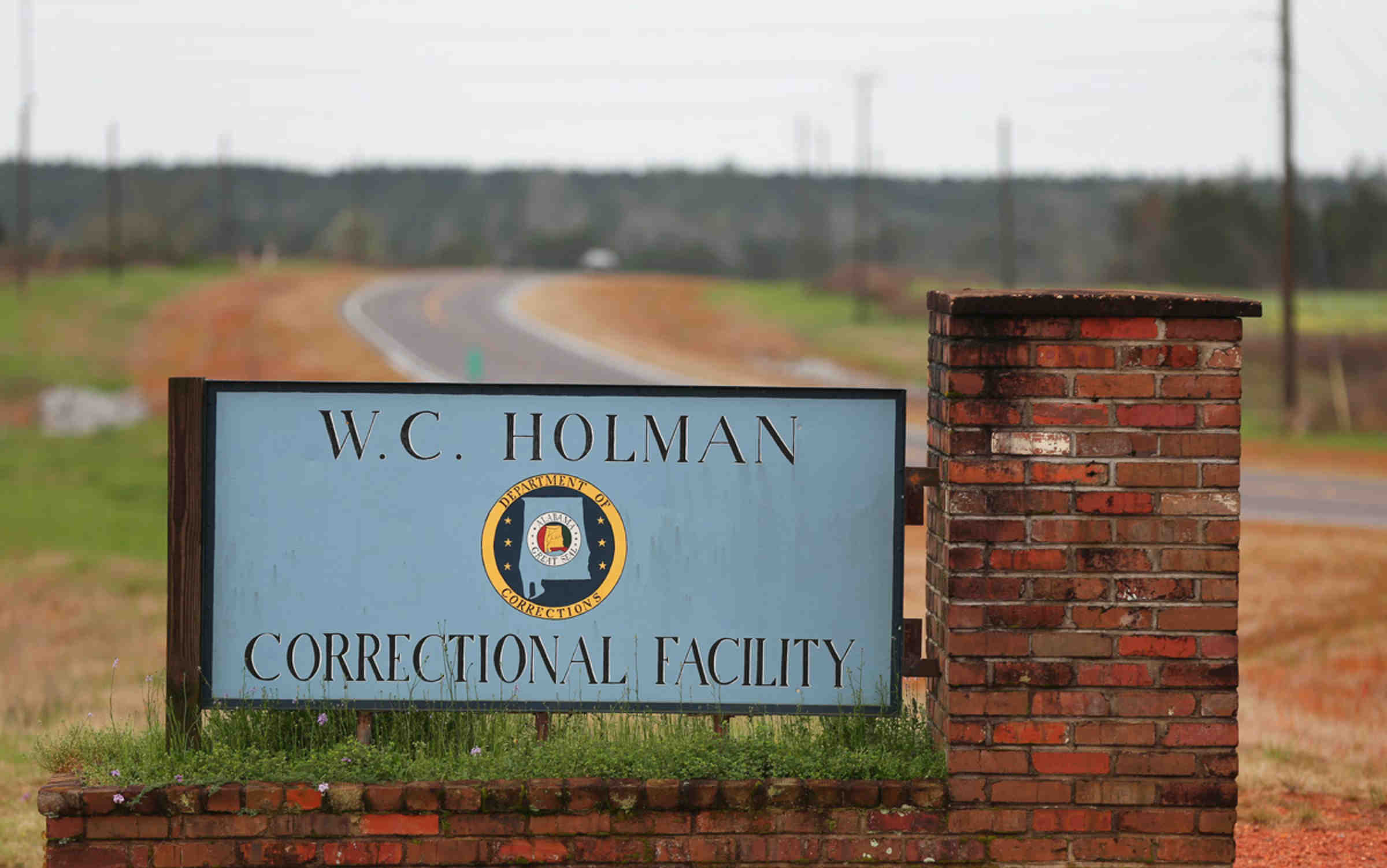
Homan Correctional Facility in Atmore, Alabama (Sharon Steinmann/AP).
In 1998, a young Tennessee-based lawyer named Earle J. Schwarz agreed to represent Rocky in his post-conviction appeals. Until 2017 Alabama did not automatically provide counsel to death row inmates during this stage of their appeal, so the American Bar Association and other legal advocacy groups sought out lawyers like Schwarz to work pro bono on death penalty appeals in the state.
Schwarz worked on Rockyโs case for over five years, as it made its way through the state appeals process. In 2003, he received notice that Rockyโs petition for a post-conviction appeal had been denied by the state. The next step was to prepare to file a federal habeas petition. โFederal habeas corpus review is a critical stage in a death penalty case, because it allows death row prisoners to bring federal constitutional claims that were heard in state court but were not successful,โ said Anna Arceneaux, senior staff attorney with the ภฯฐฤรลฟชฝฑฝแน๛ Capital Punishment Project. โAnd federal courtโwhere judges are appointed and not electedโis a very different atmosphere for a prisoner.โ
But by then, Schwarz had begun working at a new law firm, and inexplicably, he didnโt tell Rocky that his state appeal had been denied. This was a devastating moment, though Rocky wouldnโt know it for another year. โMr. Schwarz decided that he could no longer represent Rocky, but unfortunately he just sat in a room and said that quietly to himself,โ said Keeton. โHe didnโt tell Rocky, he didnโt call the courts and let them know, he didnโt tell the prosecutors, he just quit doing anything.โ (In an email, Schwarz said that when he joined the new firm, he lost a four-person team working on Rockyโs case. โI should have returned the file to the Equal Justice Initiative at that time; I did not; thatโs on me,โ he wrote.)
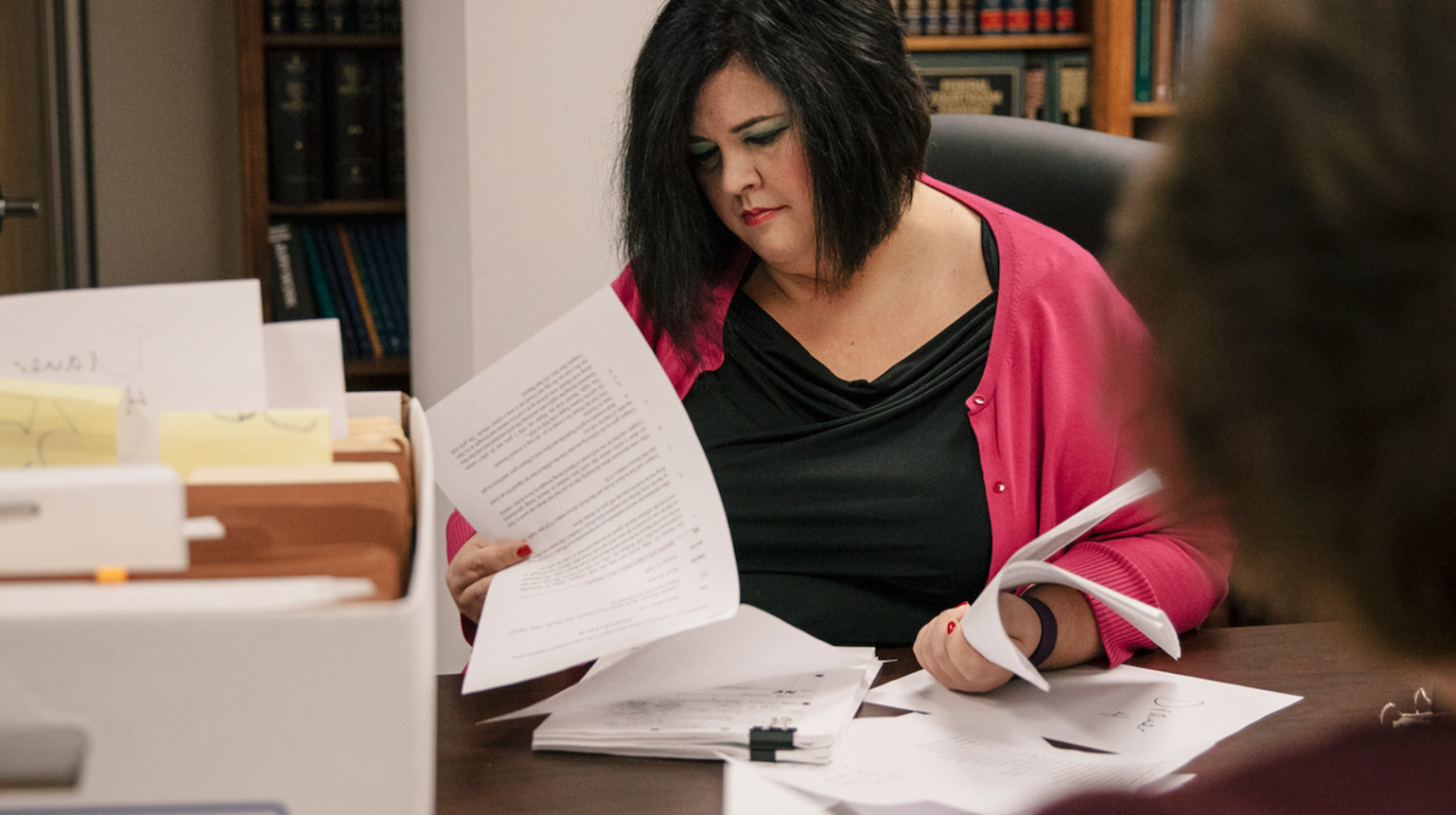
Rocky Meyer's Current Attorney, Kacey Keeton (Andrea Morales/ภฯฐฤรลฟชฝฑฝแน๛).
A year later, Rocky received a letter from the state Attorney Generalโs office saying that heโd missed the deadline to file any further habeas corpus petitions and notifying him that Alabama would be moving to set an execution date. Rocky, who could only read at a third-grade level, had to ask another prisoner to read the letter aloud to him.
In a recent interview, Rocky said when he realized what the letter meant, โIt scared the hell out of me. I mean literally, I didnโt know what to do. I was shaking and I couldnโt breathe. A couple of guys calmed me down and told me what to do.โ
The prisoner whoโd read the letter to Rocky was represented by the Equal Justice Initiative, and he reached out to the organization to ask for help. Frantically, attorneys working there filed a petition with the Capital Habeas Unit of the Federal Defender Office for the Middle District of Alabama, asking if defenders assigned to the unit could take up Rockyโs case. But it was too late. The state of Alabama argued that Schwarzโs failings were irrelevant, contending that the burden had been on Rocky to stay on top of his case. The US Court of Appeals for the 11th Circuit agreed. โ[They] said, yes, we showed that Schwarzโs failures were a problem, but that Rocky even with his intellectual disability had to show some level of diligence on his part,โ said Keeton. โWe had affidavits that showed [habeas corpus] language is above college level in terms of reading and understanding, and that Rocky reads at approximately a third or fourth grade level, so that will never make sense to me.โ
โA lot of people think that people on death row know the law, they know this-or-that, but I donโt,โ said Rocky. โI give all my trust to my attorneys and stuff. If I could read the law in the books and learn and study, I would. But Iโm not able to do that. Iโm not a learnable type of person.โ
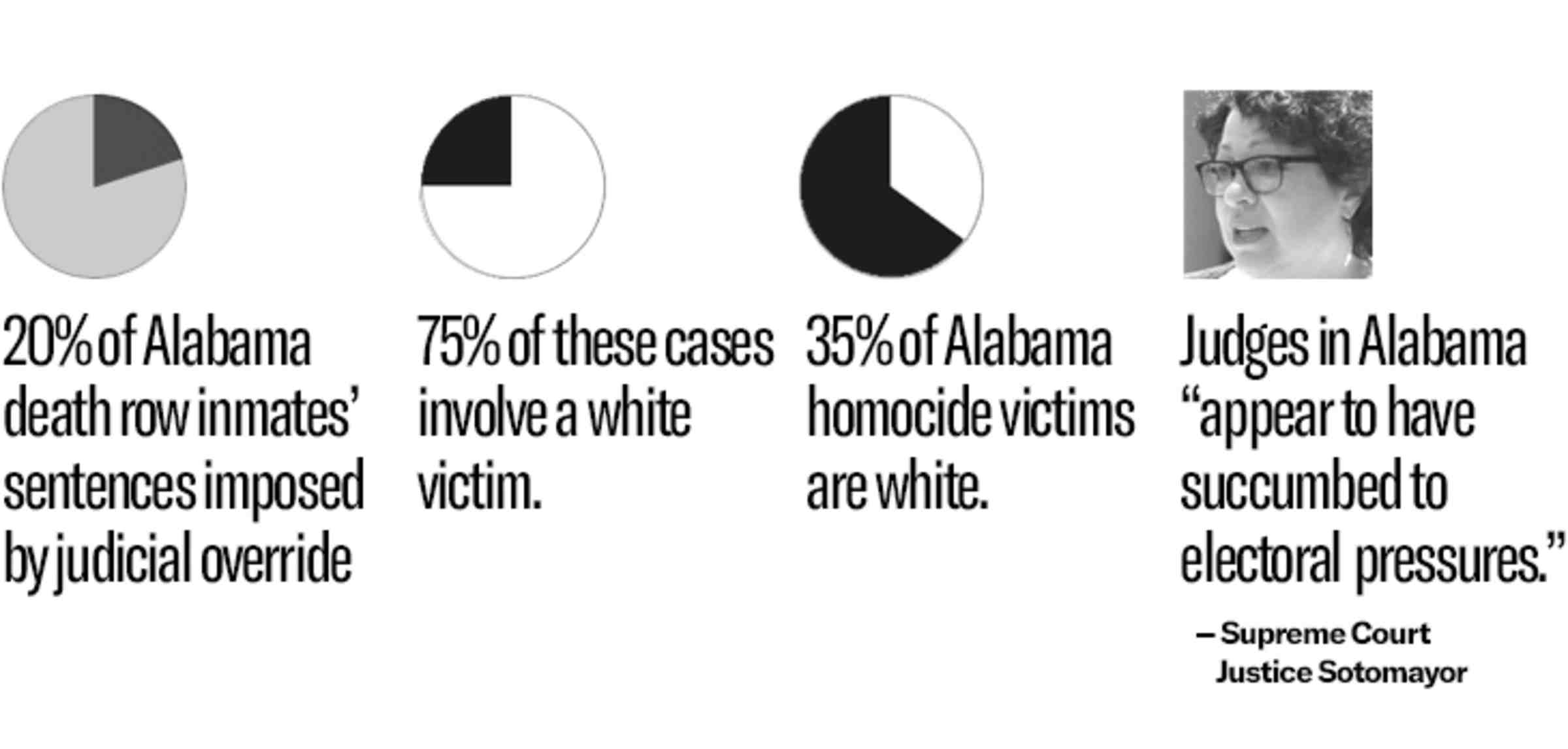
In Alabama, state judges are elected by popular vote, and they often emphasize their โtough-on-crimeโ record while campaigning. According to another Equal Justice Initiative study, the use of judicial overrides to dole out death sentences in Alabama often spiked during election years. In 2013 the Supreme Court declined to hear a challenge to Alabamaโs judicial override statute, but Justice Sonia Sotomayor wrote in dissent that judges in the state โappear to have succumbed to electoral pressures.โ In Rockyโs case, the judge who imposed his sentence was facing re-election the next year.
Although the practice is now no longer permitted in Alabama, the law passed by the Legislature wasnโt retroactiveโwhich means that anyone put on death row by judicial override stayed there despite the Legislatureโs tacit acknowledgement that the practice was unjust.
After his conviction Rocky was transferred to Holman Correctional Facility, where Alabama carries out its death sentences. His trial lawyers filed an appeal, unsuccessfully. Once the appeal of a death row inmateโs initial conviction is denied, there is a lengthy, byzantine post-conviction process which can last for decades. The habeas corpus process offers inmates the chance to present new evidence in their cases and dispute the underlying rationale that led to their conviction. This is the stage in the death penalty process where many sentences have been overturned on the basis of poor representation by counsel at trial, procedural errors, the recanting of witness testimonies, or new evidence of misconduct by prosecution, police, or juries.
New Information Comes to Light
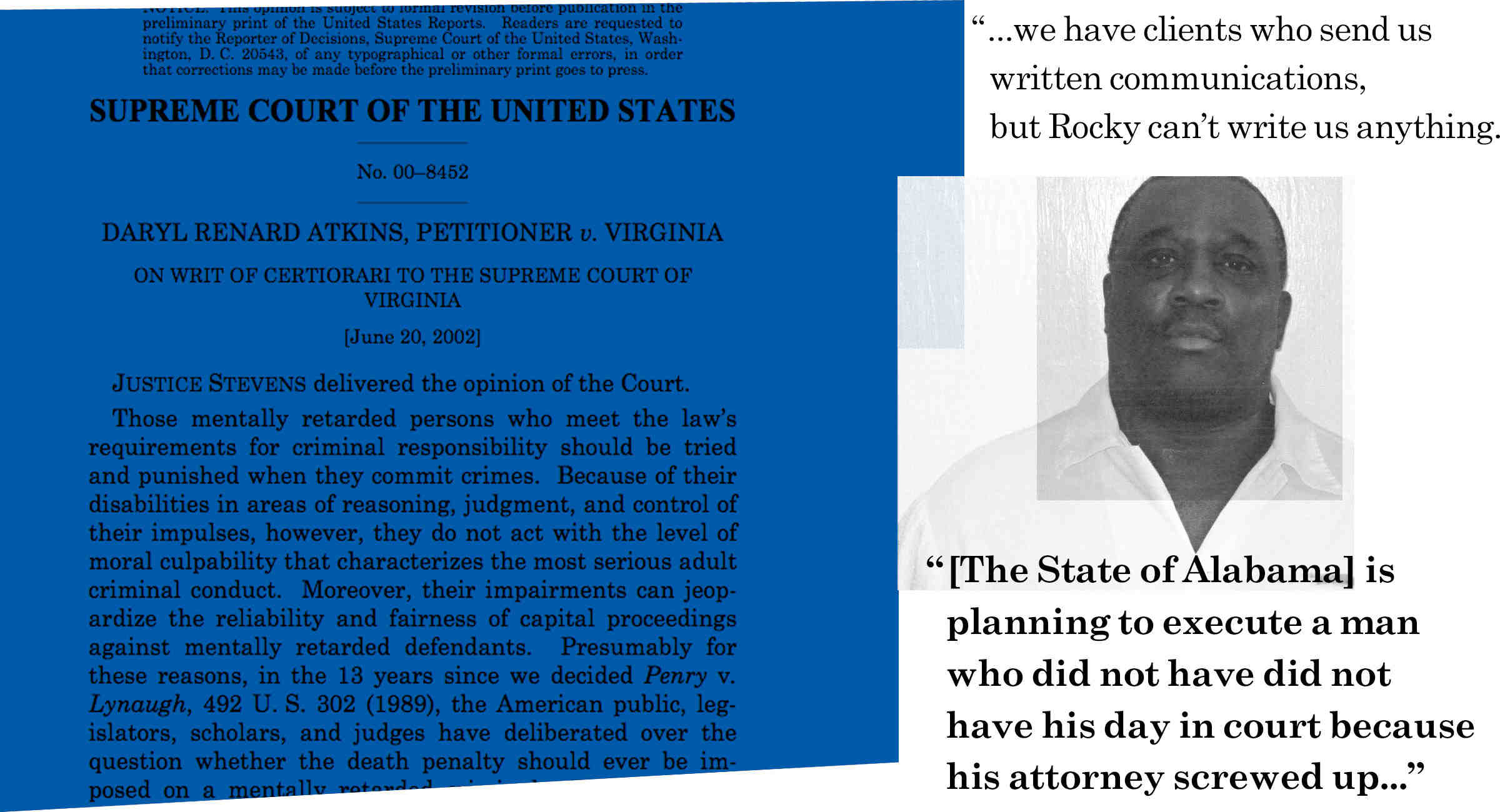
While fighting for a deadline extension in court, lawyers working on Rockyโs case heard a shocking story from Marzell Ewing, Rockyโs acquaintance who had testified to having seen him trade the VCR in the shot house. Around the time homicide detectives shifted their focus away from Cool Breeze, Marzell was arrested while driving a stolen car in Decatur. Marzell told the attorneys that one detective had offered to make the arrest disappear if he would say that heโd seen Rocky bring the VCR to Butch at the shot house.
In a declaration that Marzell signed in late 2004, he said his testimony during Rockyโs trial was โnot truthful. I did not see who brought the VCR to the shot house that night.โ He further stated that โDetective Boyd told me that he would take the stolen car that I had been driving and leave it by the side of the road.โ Police reports from the time support his story: two suspects were indeed arrested in a stolen vehicle matching the one described by Marzell on Oct. 28, 1991, the same day Boydโs notes indicate he first interviewed Marzell.
The evidence that police in Decatur tampered with at least one witness was a bombshell. It didnโt entirely contradict the prosecutionโs narrativeโRocky had, after all, already admitted to trading the VCR to Butchโbut it raised powerful questions about the conduct of Decatur police during the investigation. In federal court, Marzellโs declaration along with Puckettโs account of the juryโs compromise verdict might at a minimum have called his death sentence into question, if not the conviction itself. But it still wasnโt enough. A federal judge ruled that Marzellโs new statement didnโt override Rockyโs failure to meet the habeas corpus deadline; even with the new evidence, the case was effectively closed. With the door to judicial review shut, the only remaining relief wasโand still isโintervention by Alabamaโs Governor Kay Ivey.
Schwarz later admitted to negligence, signing a declaration that said he โdid not tell Mr. Myers I was no longer representing him,โ and that he โdid not inform Mr. Myers that I would not pursue relief on his behalf in federal court.โ The Board of Professional Responsibility of the Supreme Court of Tennessee issued a public censure to him in 2005, saying that he โwillfully neglected his representation of his client.โ
In 2018, Schwarz was elected president of the Memphis Bar Association, which states that one of its purposes is to โencourage and assist lawyers in maintaining and improving their competence so that they can better serve their clients and the public.โ Rocky Myers remains on death row.
On Death Row in Alabama
Rocky lives under near-constant lockdown at Holman, sometimes going days without yard time due to staff shortages in the Alabama Department of Corrections. In a phone interview in early February, he described a somber atmosphere on the prisonโs death row, where a friend of his named Dominique Ray was scheduled to be executed the week we spoke. โAt times like this is when everybodyโs mostly quiet,โ he said. โTV is down real low, you could kinda hear a pin drop.โ Days later, Ray was executed after the US Supreme Court denied his request to have an imam present in the lethal injection chamber.
โWhen Iโm praying, I tell the Lord Iโm terrified,โ Rocky said. โI just donโt show it because it donโt do any good to other people. But inside in my mind and heart and stomach, Iโm scared.โ
A former church drummer, Rocky attends services regularly, singing in a choir that meets once a week. His children are now grown, with children of their own, some of whom he met during a visit for the first time last year. Rocky says that being separated from his family has taken a toll: โItโs one of the worst things that Iโm going through. I have grandkids that are growing up without me.โ
Rockyโs legal team checks in on him regularly with in-person visits or by phone. โGetting him to understand whatโs happening in his case at any given moment is definitely a challenge,โ Keeton said. โWe have clients who send us written communications, but Rocky canโt write anything to us.โ
In 2012, an execution date was set for Rocky, but Keeton managed to add his name to litigation challenging Alabamaโs lethal injection protocol. That litigation was dropped last year after the state agreed to offer asphyxiation by nitrogen gas as an execution option. Now, Alabama is working on a protocol for the new method, after which Rocky will be given a new execution date.
The only chance for Rocky to avoid execution now is a grant of clemency from Governor Kay Ivey. Both he and Keeton know itโs a long-shot, and initially he told her not to pursue it. โI didnโt want to be over here begging for my life and stuff like that,โ he said. But Keeton persisted. โThe fact that we are potentially executing a man who did not have his day in court because an attorney screwed up should give everybody pause,โ Keeton said.
Rocky says itโs been frustrating to watch other prisoners get breaks in their case and be released while heโs been effectively shut out of court. โThereโs a lot of people who support the death penalty,โ he said, โBut to know that there are people on death row that is or could be innocentโhow can you support that, you know?โ
This piece was originally published at .
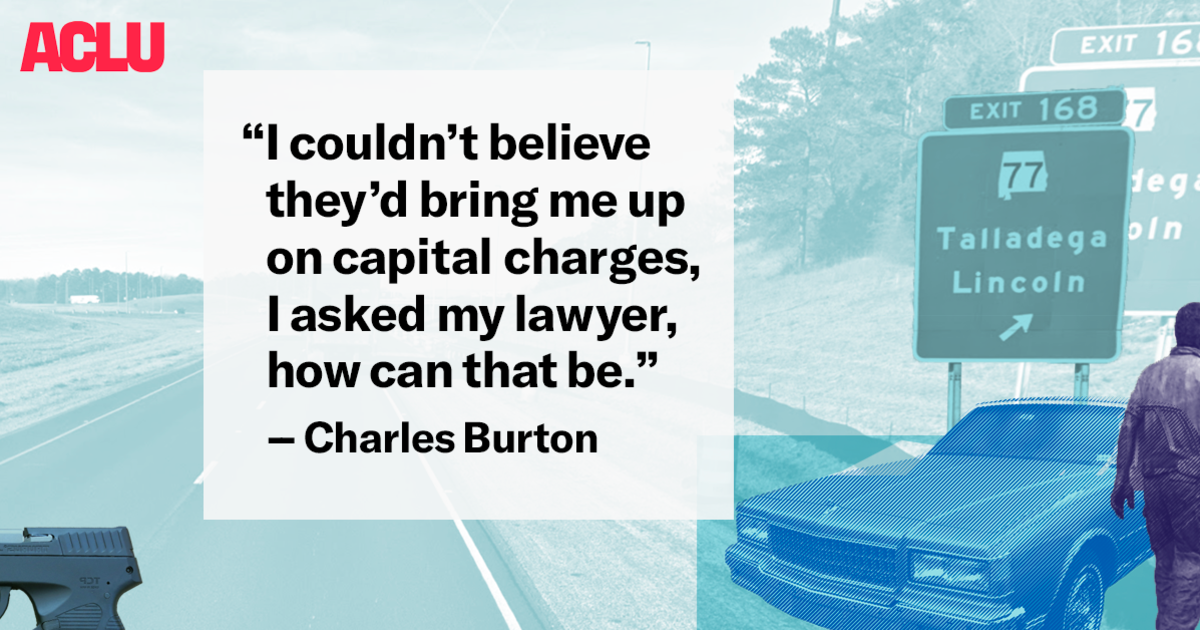
When the State Kills Those Who Didnโt Kill
27 states allow executions of people who took part in a felony that led to a death, even if they didnโt kill anyone. Charles Burton is one of...
Source: ภฯฐฤรลฟชฝฑฝแน๛
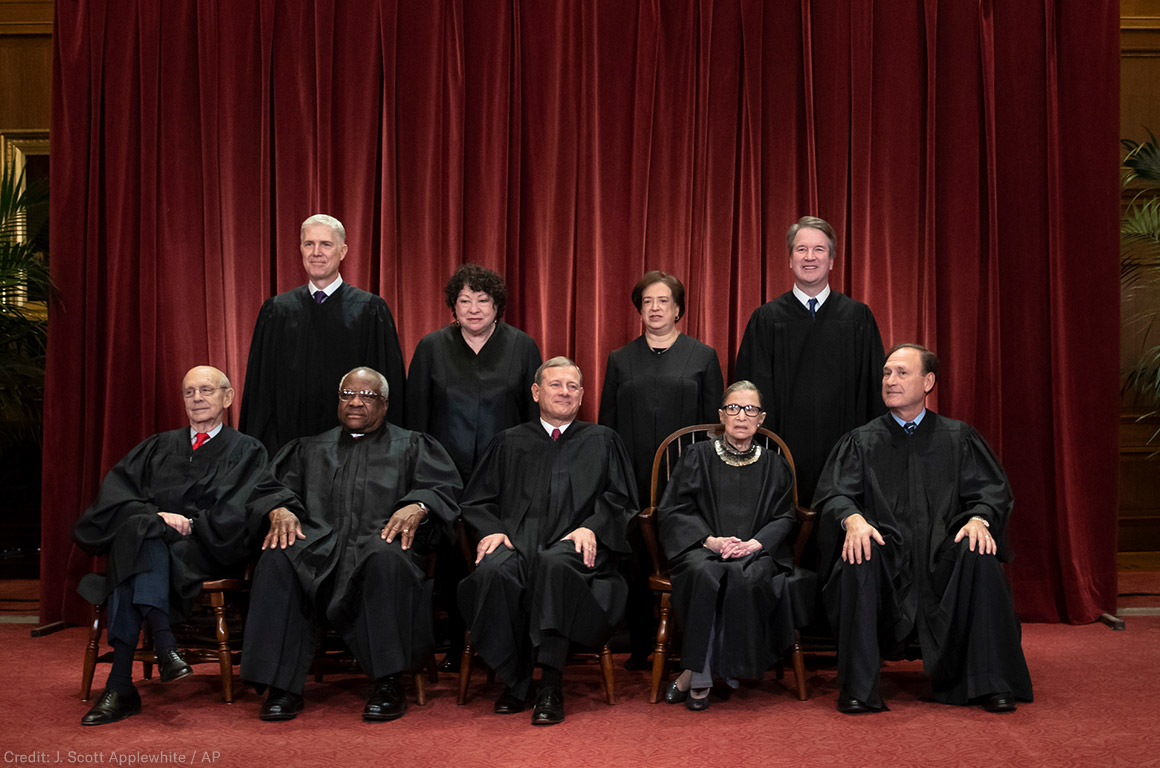
The Supreme Court Is Playing Favorites With Religion
Source: ภฯฐฤรลฟชฝฑฝแน๛
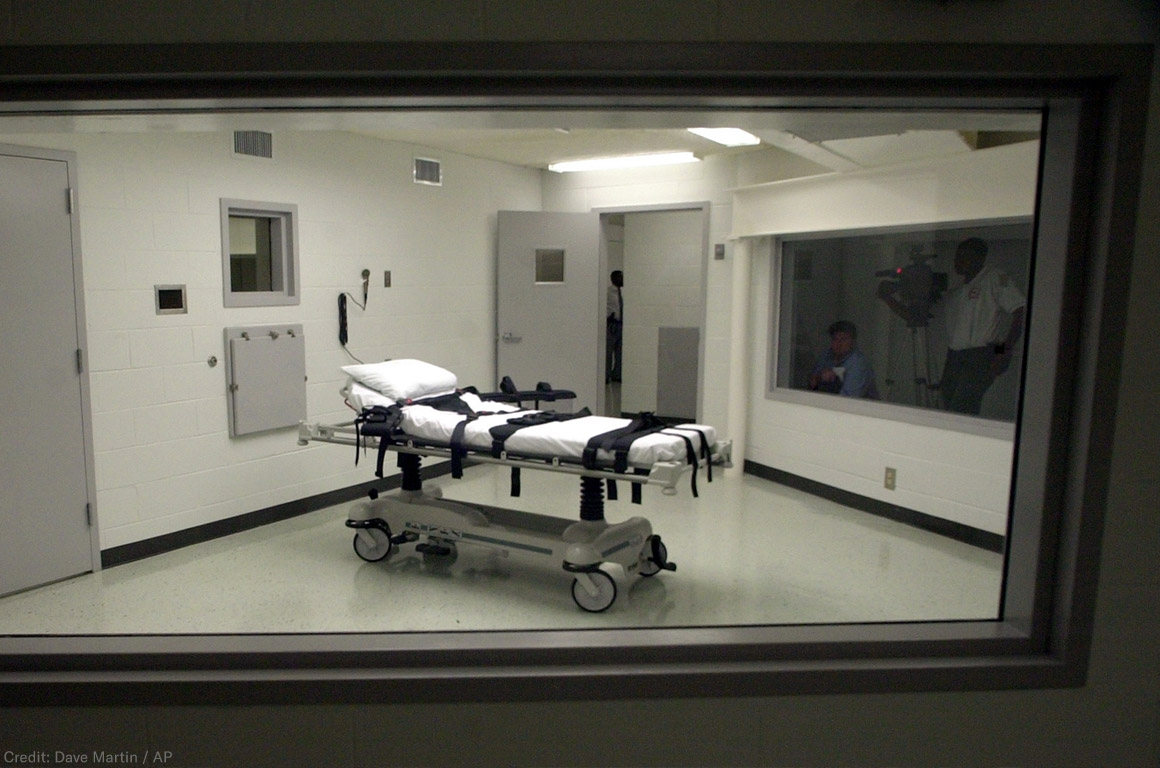
In Alabama, a Muslim Man Was Denied the Presence of His Imam During His Execution
Source: ภฯฐฤรลฟชฝฑฝแน๛

The Death Penalty in 2018: A Punishment on the Decline
Source: ภฯฐฤรลฟชฝฑฝแน๛




